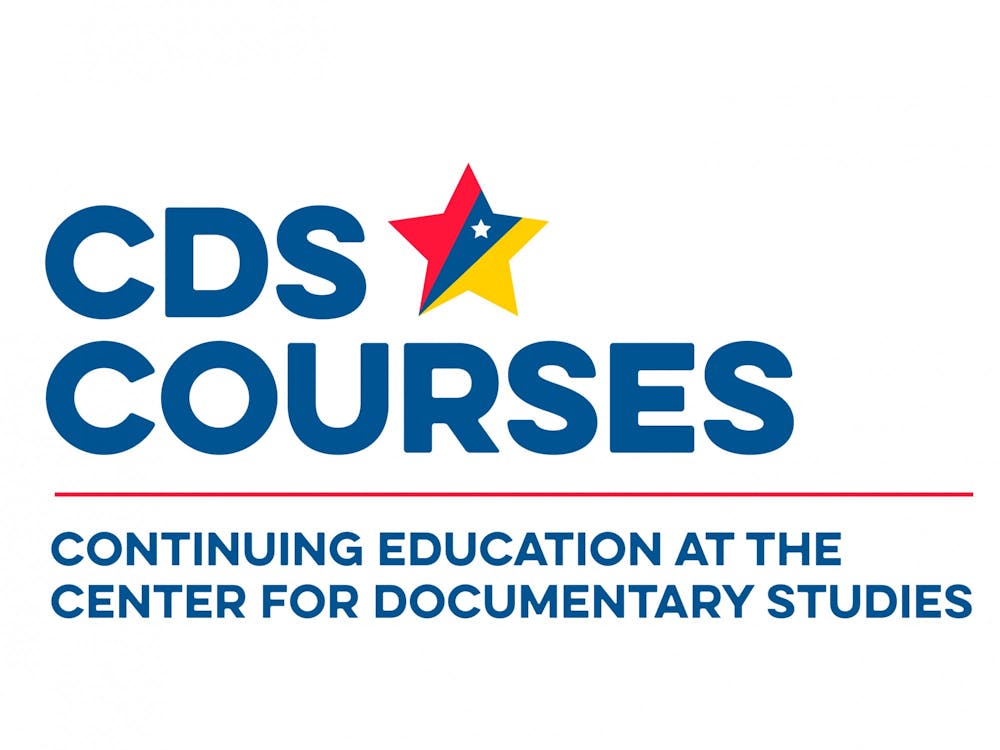“The future is in your hands,” Dinesh D’Souza warns in “2016: Obama’s America.” Panned by critics as “skewed,” “sloppy” and a “shaggy, piecemeal right-wing screed,” the 2012 documentary was a speculative investigation into President Obama’s upbringing and political intentions. In one scene, D’Souza warns viewers of a foreboding future in which the supposedly anti-white, anti-American Obama plans to convert the Middle East into a “United States of Islam.”
Documentaries tell stories, and as consumers of media, we learn from those stories. And sometimes, those stories are dangerously problematic. In the case of D’Souza’s “2016,” the documentary perpetuated racist and islamophobic myths to cater to a reactionary demographic.
Michael Betts II, the Director of Continuing Education at Duke’s Center for Documentary Studies (CDS), hopes to deconstruct similar narratives in the art of documentary. This spring, he is leading CDS’s movement towards an actively anti-racist curriculum for its continuing education program. Betts asserts that his push to reform CDS’s curriculum was inspired by his own upbringing and complex relationship with media.
“I’m an Afro-Indigenous man,” Betts said. “I grew up in poverty and in spaces where I didn’t quite understand the value and power of my body, of my story and of my heritage.”
While a student at Duke’s MFA in Experimental & Documentary Arts program, he realized that he was surrounded by students and instructors who refused to acknowledge his differences. In one history class, however, he was able to harness the power of documentary to reconcile that gap.
“Using the documentary arts as this immersive environment to move students into a place where a name on a book was not just this flat, two-dimensional object but a name that lived and breathed — that was powerful,” Betts said.
His extensive work in documentary and aim to recenter Black and Brown narratives led him to ask questions about how CDS’s curriculum failed BIPOC: “What does it mean to be truly anti-racist? What does it mean to be equitable? How does that show up when we’re telling stories? Who do we need to foreground, as the media makers, so that people feel seen?” With that in mind, Betts has recentered the curriculum around marginalized voices,
“[We are] asking our students to start understanding how the impact of a story can either help or hurt a community,” Betts said. “Those are the kinds of things that we’re asking our students to do — constantly uncover and turn over their own hypocrisy.”
Betts also stresses the importance of amplifying all kinds of voices in CDS curriculum.
“If you find the folks that are at the most outcast spaces and you bring them to the middle, everybody wins,” he said. “When you’re training somebody, however you are trained is how you’ll continue. So we are requiring our instructors to meet a minimum 60% diversity standard of the folks who we are foregrounding when we’re talking.”
CDS’s effort to include documentarians of all genders and racial identities is a stark contrast to the current documentary industry, where 86% of Oscar-nominated documentary directors were men and 71% were white. By integrating anti-racism into CDS’s curriculum, Betts hopes to reposition the next generation of documentarians to tell diverse, impactful stories that amplify marginalized voices.
CDS courses’ mission is to train documentarians of all colors, genders, creeds, ethnicities, religions, abilities, and cultural identities. Spring 2021 courses at the Center for Documentary Studies are now open for registration at https://www.cdscourses.org/. Classes run from Feb. to April. Duke students, staff, faculty and alumni will receive a 10% discount on any course.
Editor's note: A previous version of this article reflected Betts's experience as a UNC student. The quote has been updated to reflect that Betts's experience was as a Duke MFA student. The Chronicle regrets this error.
Get The Chronicle straight to your inbox
Sign up for our weekly newsletter. Cancel at any time.
Derek Deng is a Trinity senior and a recess editor of The Chronicle's 119th volume.

